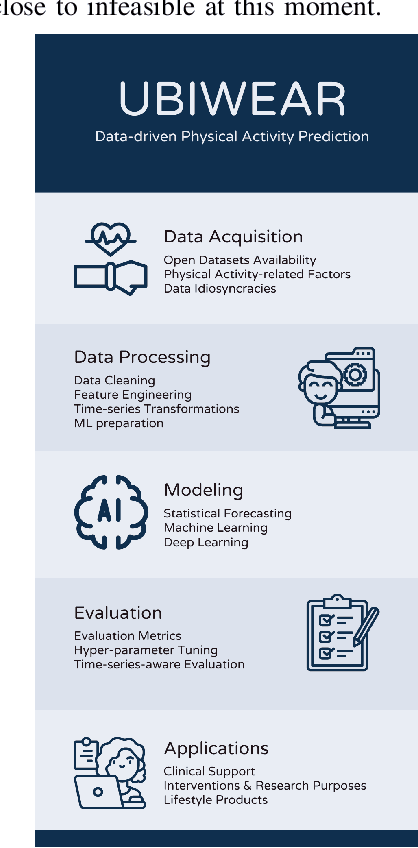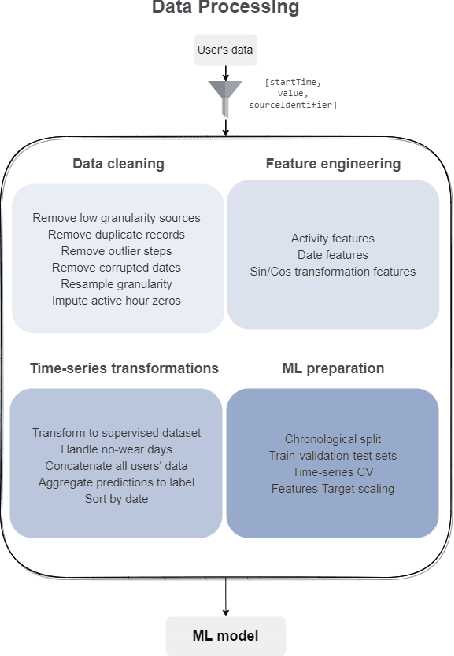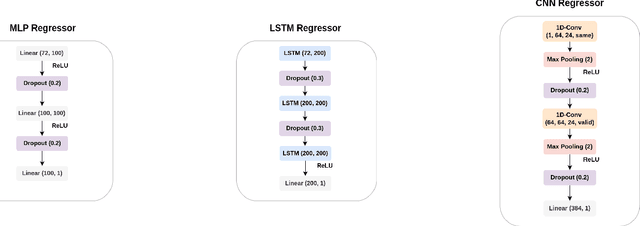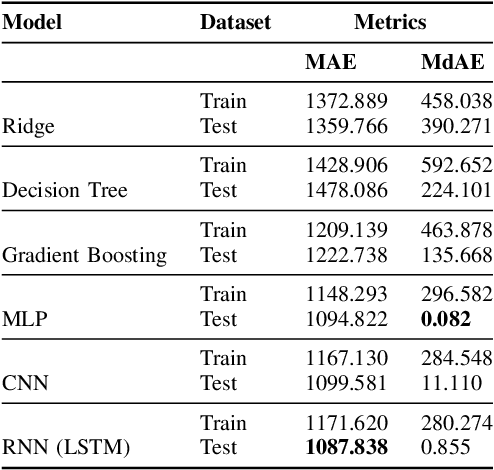UBIWEAR: An end-to-end, data-driven framework for intelligent physical activity prediction to empower mHealth interventions
Paper and Code
Jan 03, 2023



It is indisputable that physical activity is vital for an individual's health and wellness. However, a global prevalence of physical inactivity has induced significant personal and socioeconomic implications. In recent years, a significant amount of work has showcased the capabilities of self-tracking technology to create positive health behavior change. This work is motivated by the potential of personalized and adaptive goal-setting techniques in encouraging physical activity via self-tracking. To this end, we propose UBIWEAR, an end-to-end framework for intelligent physical activity prediction, with the ultimate goal to empower data-driven goal-setting interventions. To achieve this, we experiment with numerous machine learning and deep learning paradigms as a robust benchmark for physical activity prediction tasks. To train our models, we utilize, "MyHeart Counts", an open, large-scale dataset collected in-the-wild from thousands of users. We also propose a prescriptive framework for self-tracking aggregated data preprocessing, to facilitate data wrangling of real-world, noisy data. Our best model achieves a MAE of 1087 steps, 65% lower than the state of the art in terms of absolute error, proving the feasibility of the physical activity prediction task, and paving the way for future research.
 Add to Chrome
Add to Chrome Add to Firefox
Add to Firefox Add to Edge
Add to Edge